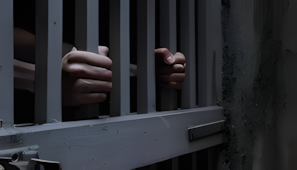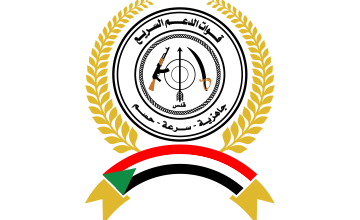250 individuals face the death penalty …Teachers, Doctors, Journalists, and Students
For accusations of collaborating with RSF

Two hundred and fifty individuals are facing the death penalty for accusations of collaborating with the Rapid Support Forces (RSF) in Port Sudan Prison.
The Sudanese Authorities continue on their path of carrying out campaigns of widespread arrests and unlawful detention without judicial orders in several Sudanese cities and states, most notably of which are: Sennar, River Nile, White Nile, Kassala, El-Gedaref, and the Red Sea.
These arrests target civil society leaders, members of Resistance Committees, and volunteer activists without clear reasons.
Rehab Mubarak Sayed Ahmed, a member of the Executive Office of the Emergency Lawyers human rights group, and a member of Sudan Human Rights Network (SHRN), revealed information regarding the unimaginable suffering of approximately (1,600) prisoners in Port Sudan Prison, as they face poor conditions.
Rehab stated in a report on the conditions of prisoners, that the above-mentioned poor conditions and complications have worsened considerably following the recent drone attacks that targeted the coastal city.
At the same time, she noted that the dangers within the prison are present and evident, both internally and externally, particularly after the military headquarters near the prison were targeted. Concern has spread amongst inmates that the entire city has become unsafe.
The member of the Executive Office of the Emergency Lawyers human rights group pointed out that those awaiting trial inside the prison happen to wait for long periods, after trial sessions were postponed without even being brought before a judge. Meanwhile, indictment cases are postponed under the pretext that members of security are dedicated to field work and cannot appear before the courts, disregarding all the principles of a fair trial that defendants should enjoy.
She also reported a number of practices and behaviors occurring within the prison that prevent defendants from being granted their rights to proper procedures. These practices include the defendants being held in prison for very long periods, up to a year and a half, without being brought to trial, even after the completion of investigation procedures. According to the law, this period shouldn’t exceed six months, according to the powers of the highest executive authority (the Public Prosecutor).
Rehab Mubarak went on to point out that the sessions during the trial were spaced out, as the period between sessions ought not exceed (40 days). She added that any longer than that violates the norms of a fair trial, which should be swift and efficient (Sudanese criminal courts typically space trial sessions no more than two weeks apart).
She emphasized the ineffectiveness of the procedure in the trial itself, stating that the postponement takes place without granting the defendant an opportunity to appear before the renewal judge. Consequently, the judge lacks the opportunity to monitor the prisoner’s health and won’t be aware whether the defendant is being tortured in prison.
The member of Sudan Human Rights Network (SHRN), stated that after the final verdict is issued, which is usually either a death sentence or a life sentence, the defendant waits months awaiting a decision on the appeal they filed within the first (15 days) of the verdict, without knowing the reasons for the delay.
Rehab Mubarak pointed out that the death sentences handed down in prison against individuals under (Articles 50 and 51) of the Sudanese Penal Code, which are linked to charges of collaborating with the Rapid Support Forces (undermining the constitutional system and waging war against the State), are approximately (75) individuals, sentenced to Class A, (83) sentenced to Class B, and approximately (92) sentenced to Class C.
Last year, two women were convicted in emergency courts: Hanadi Daw Al-Beit Abbas, who was sentenced to death and isn’t a resident of Port Sudan. And Shaima Saeed Hassan, who was sentenced to life imprisonment. The prosecution searched their phones and convicted them simply for criticizing the Sudanese Armed Forces (SAF) or supporting the Rapid Support Forces, according to the court’s information.
“All of these convicts are enlightened members of the Sudanese people, including teachers, doctors, lawyers, journalists, and university students,” according to Rehab.
She continued: “What demonstrates the injustice of their accusations and the arbitrary arrest procedures, which are politicized to serve the interests of those who want to throw them in prison, is that none of them are involved in drug use or cause trouble inside the cells. Rather, most, if not all, of them are well-behaved and well-mannered, and all of them spend time inside mosques, which only goes to confirm the absence of any criminal nature.”
She explained that all of these convicts were sentenced either because of phone messages exchanged with others expressing their personal opinions opposing the war, or for purely tribal and regional reasons.
According to Rehab, the risks also include food inside the prison, as the prison is required to provide breakfast and lunch, and recently, lunch has been delayed significantly.
She shared that the desalination plant inside the prison has stopped functioning, hence, the salty water is mixed with desalinated water brought in from outside the prison, and is refrigerated so that its salinity doesn’t become apparent while hot.
Rehab described the situation in Port Sudan Prison as catastrophic, lacking even the most basic standards of safety and justice in a city where deadly drone attacks have become a daily occurrence. She noted that the Minister of Finance maintains the highest standards of safety for his residence and where he lives, while the Sudanese people are being subjected to unnecessary death because of their rejection of this absurd war.





